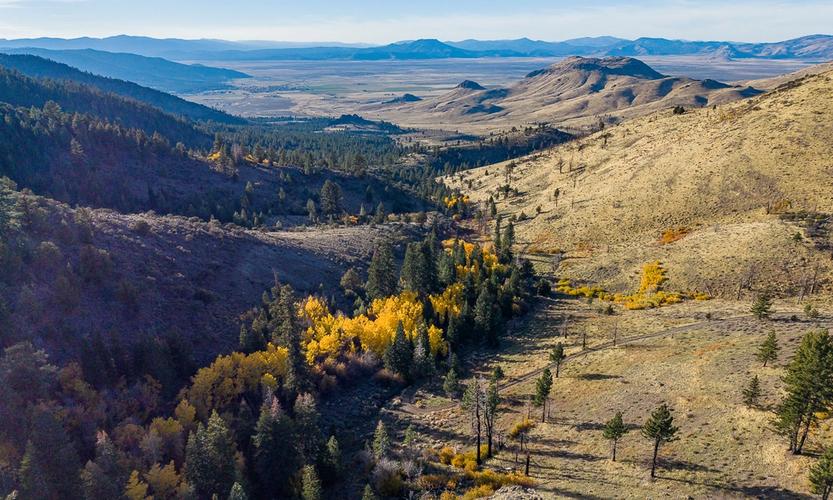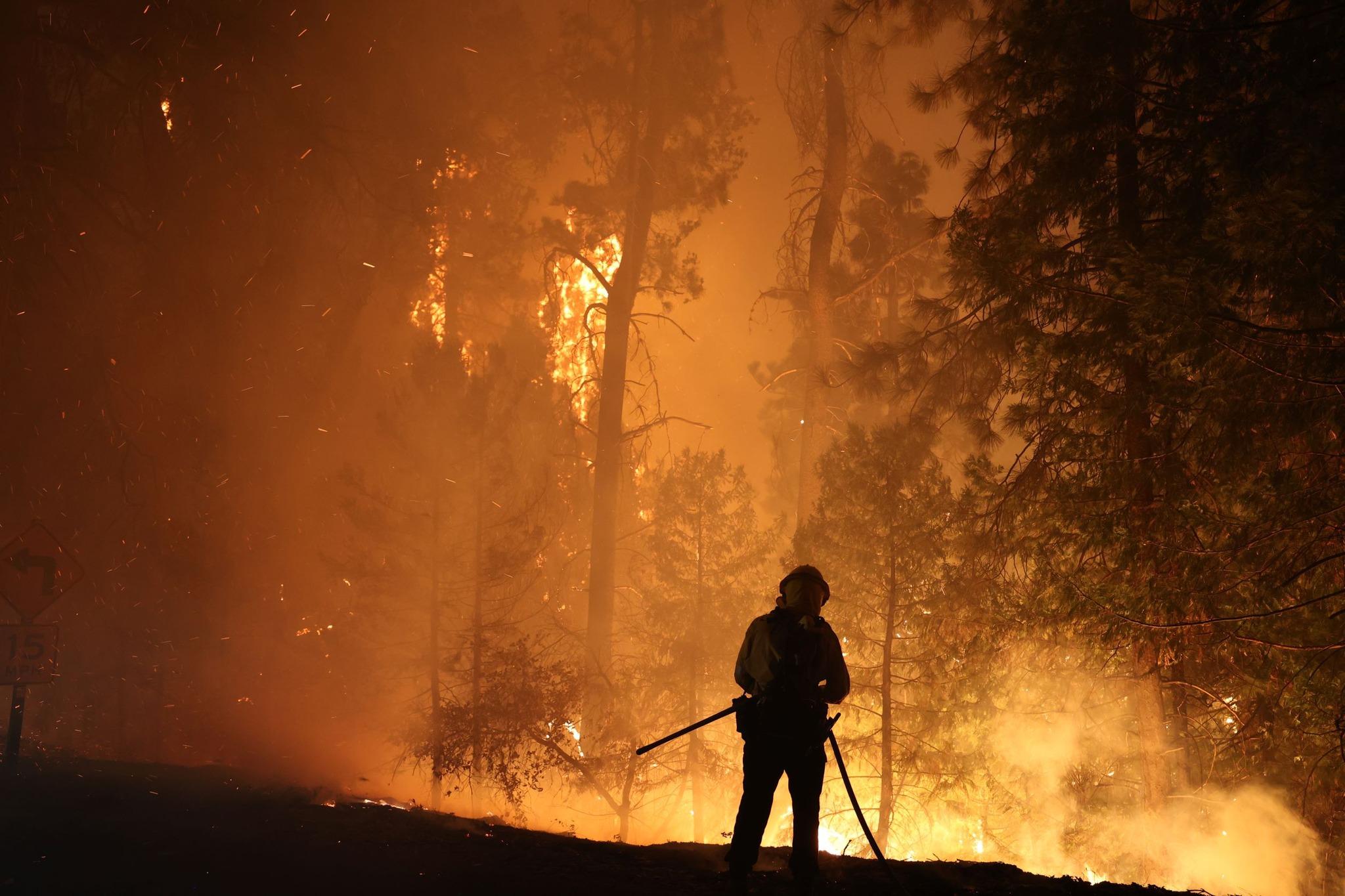
Washoe Tribe Completes Acquisition of Loyalton Ranch
February 11, 2026
State conservation funds and partners helped the Washoe Tribe reclaim ancestral homelands for restoration.
Read article
Governor Newsom cites cost concerns and collective bargaining in vetoing firefighter pay raise bill.
October 13, 2025

A Cal Fire firefighter responds to the Mosquito Fire in September. Photo courtesy of Cal Fire.
SACRAMENTO — On October 3, California Governor Gavin Newsom vetoed AB 1309, a bill that would have required the Department of Forestry and Fire Protection (Cal Fire) firefighters to be paid within 15% of the average wage of 20 listed local fire departments. AB 1309 was introduced in February by Assemblyman Heath Flora (R-Ripon), and it passed in the Assembly and Senate with near-unanimous support. The change would have affected rank-and-file members of State Bargaining Unit 8.
In a letter explaining the rejection, Newsom stated, “While I appreciate the author’s intent, the bill would create significant cost pressures for the state and circumvent the collective bargaining process. State employee salaries, along with other components of compensation such as health and pension benefits, should be determined through collective bargaining. Establishing a statutory salary floor for employees of a single department undermines this process, to the detriment of both the state and other bargaining units.”
In a statement to Fox News Digital, Assemblyman Flora responded, “As a former Cal Fire firefighter, this one hits hard. I’ve been in their boots. I know how demanding the job is and what it takes to keep Californians safe during long and brutal fire seasons.”
Speaking with ABC10, Cal Fire Local 2881 president Tim Edwards, representing over 7,000 Cal Fire workers, said that the bill was specifically written with the collective bargaining process in mind. The bill states that any increases in salary should be implemented by a memorandum of understanding negotiated through collective bargaining. “Our members can’t afford to buy houses in California. We have members leaving the state of California and commuting in because they cannot afford to work to live in the state they work,” added Edwards, noting that current Cal Fire wages are 45 to 50 percent lower than in local departments despite recent bargaining.
Based on strong support from legislators before the veto, California Senator Marie Alvarado-Gil (R-Jackson) urged her colleagues to override the decision, which would require a two-thirds vote from both the Assembly and the Senate. “Firefighters deserve better, and so do Californians. I urge my colleagues in the Assembly and Senate to override this disgraceful veto and honor our brave men and women on the frontlines with pay that matches their commitment to protecting California families,” she explained, also highlighting the importance of Cal Fire in rural areas with high fire risk and limited local services.
Notably, Governor Newsom vetoed a similarly structured bill in 2023 relating to wages for state-employed scientists. AB 1677 required the University of California, Berkeley Labor Center to analyze the salary framework for rank-and-file employees in State Bargaining Unit 10 and determine salary ranges. The bill contained similar language requiring any salary increase to be implemented via the collective bargaining process. Still, it was rejected by Newsom for circumventing the bargaining process and limiting “the state’s ability to consider various economic factors that impact the state or Bargaining Unit 10 members when proposing compensation packages during negotiations.”
While a veto override is possible, no formal action has yet been taken toward that end. Overrides are exceedingly rare in California, with the last example taking place in 1980 under Governor Jerry Brown. An override was considered for AB 1677, but the effort ultimately died without a vote.

February 11, 2026
State conservation funds and partners helped the Washoe Tribe reclaim ancestral homelands for restoration.
Read article
Local skiers and snowboarders from Truckee-Tahoe compete across multiple events in Italy’s Winter Games.
Read article
Residents now face limited connectivity options as T-Mobile ends roaming-based service in the area.
Read article
Heuer cites health and family priorities as she plans to complete her current term only.
Read article
Lawmakers, ranchers, and environmentalists debate safety, stress, and non-lethal strategies for managing predators.
Read article